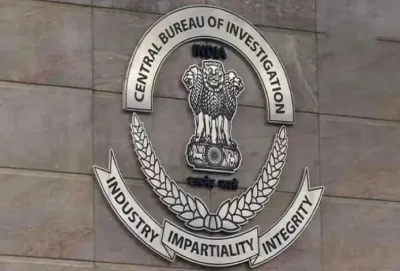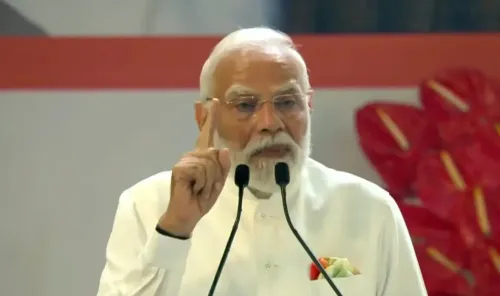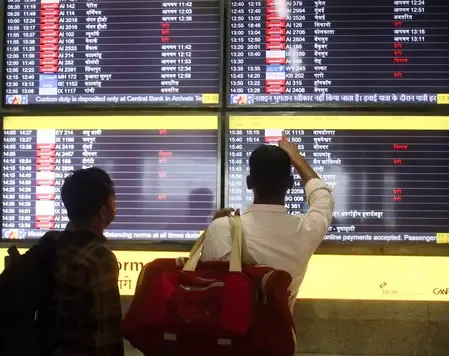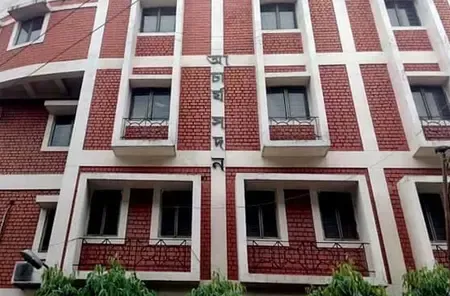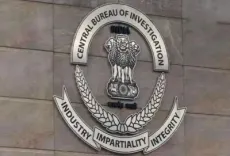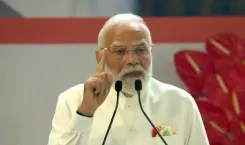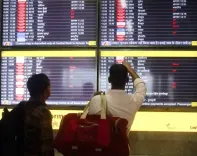Do People Have the Right to Safeguard Their Votes? Congress Responds to SC’s Ruling on Bihar Draft Electoral Rolls

Synopsis
Key Takeaways
- Citizens have the right to protect their votes.
- The Supreme Court's decision impacts over 65 lakh voters.
- Concerns about the Election Commission's verification process.
- Political parties are divided on the issue.
- Free and fair elections are essential for democracy.
Patna, July 28 (NationPress) The Congress party expressed its response on Monday regarding the Supreme Court's decision not to halt the release of draft electoral rolls in Bihar, emphasizing that despite the court's decision, citizens retain the right to protect elections from vote theft and fraudulent activities.
Bihar Congress President Rajesh Kumar remarked to IANS, "While we refrain from commenting directly on the Supreme Court's ruling, the performance of the Election Commission has been unsatisfactory. Over 65 lakh voters have had their names removed, yet the Election Commission continues with its current methods. They assert they are eliminating fraudulent voters, but the process itself is questionable."
Congress spokesperson Abhay Dubey supported these sentiments, stating, "The Supreme Court instructed that Aadhaar cards, voter ID cards, and ration cards should be used for voter verification. However, the Election Commission has failed to follow this directive. This is a case of vote theft. The removal of 65 lakh voters' names was done without adequate verification and without any door-to-door verification campaign. It's a flawed process."
Congress Bihar in-charge Krishna Allavaru stated, "Though the Supreme Court did not stay the publication of draft electoral rolls, citizens are entitled to ensure that there is no vote theft or electoral fraud. The INDIA Bloc will persist in its struggle. The SIR is a scam – a voter theft scheme for which the Election Commission is directly accountable."
On the other hand, the BJP defended the actions of the Election Commission.
Bihar BJP President Dilip Jaiswal argued, "The Supreme Court has already affirmed that no one’s voting rights should be infringed. To date, no voter has publicly protested. The Election Commission is merely eliminating voters who are deceased or registered in multiple locations. Protesting against the SIR process, which is ongoing, is inappropriate."
DMK MP Tiruchi N. Siva cautioned that the situation in Bihar could soon extend to other regions. He stated, "Reports suggest that nearly one crore voters might be denied their rights. Under the guise of the SIR, the Election Commission is performing actions while the government merely observes. Free and fair elections are fundamental to democracy. We demand a discussion on these issues. The government should be held accountable and clarify instead of evading these matters," he told IANS.
In the meantime, the Supreme Court declined on Monday to grant an interim stay on the publication of the draft electoral rolls in Bihar, which were prepared following a Special Intensive Revision (SIR) mandated by the Election Commission.
A bench comprising Justices Surya Kant and Joymalya Bagchi noted that since the petitioners had not sought interim relief during the initial hearing, it could not be provided at this time. The bench indicated that the matter would be interpreted definitively at a future hearing.
Due to time constraints, the bench postponed the hearing, scheduling final arguments for July 29.
During the brief session, the apex court stressed that Aadhaar and Electoral Photo Identity Cards (EPIC) should be acknowledged as valid forms for voter verification.
When senior advocate Rakesh Dwivedi, representing the ECI, raised doubts about the authenticity of certain documents – especially ration cards – the court responded, "Ration cards can be easily forged. However, Aadhaar and voter ID cards are presumed to be genuine. Proceed with these two documents. Address any suspected forgery on a case-by-case basis."
Multiple petitions have been lodged in the Supreme Court challenging the ECI’s June 26 directive for the Special Intensive Revision. Petitioners contend that if this directive is not overturned, it could unjustly disenfranchise millions of voters and threaten free and fair elections – the bedrock of India’s democracy.

